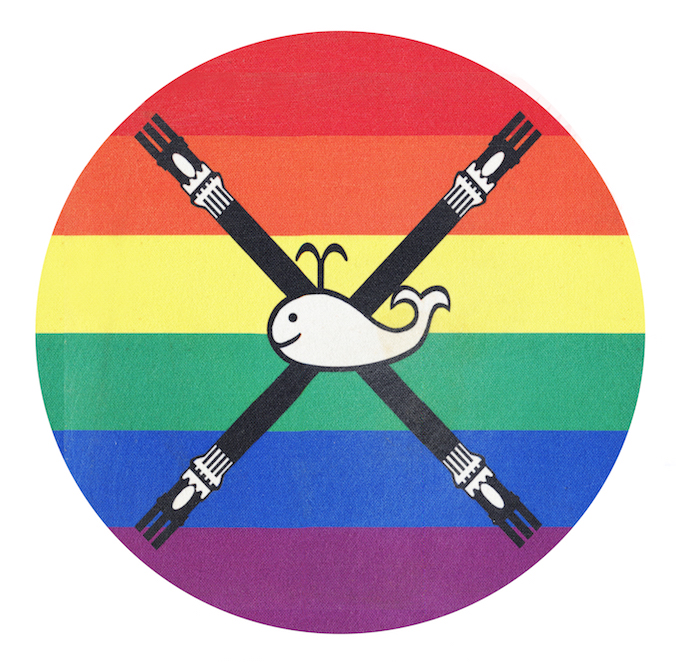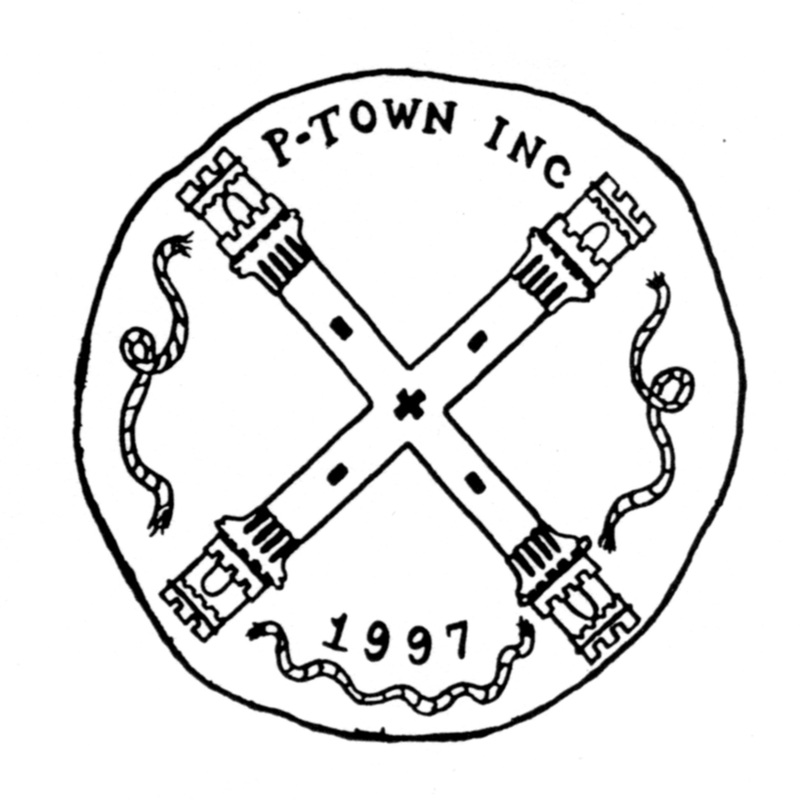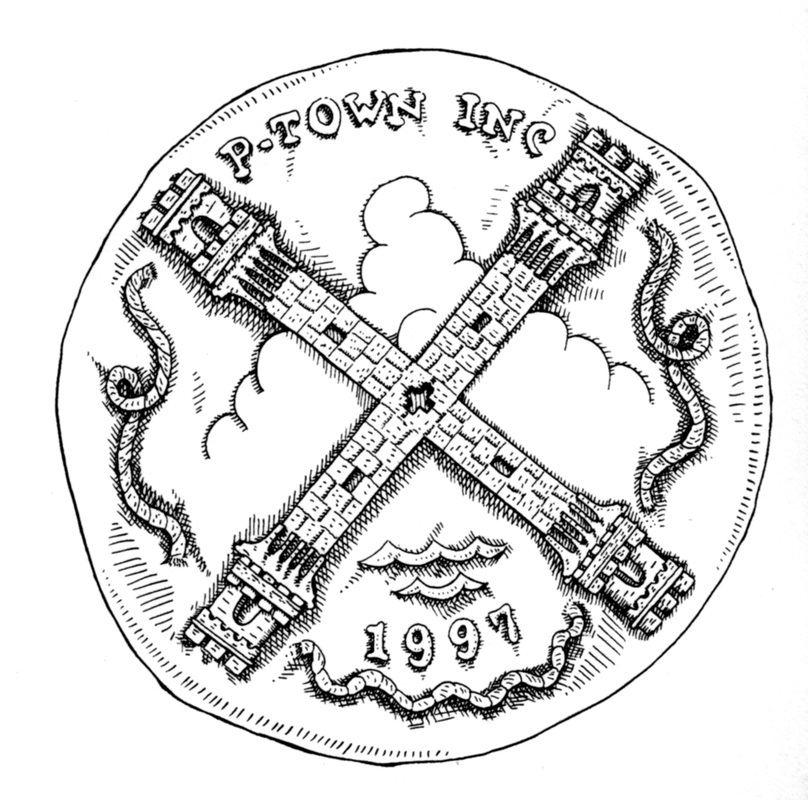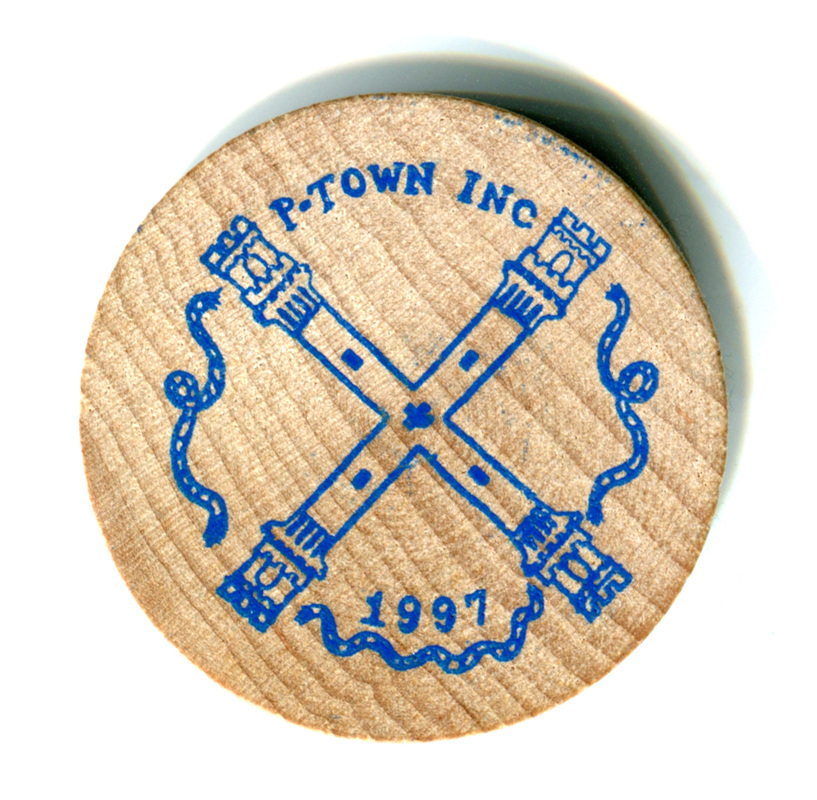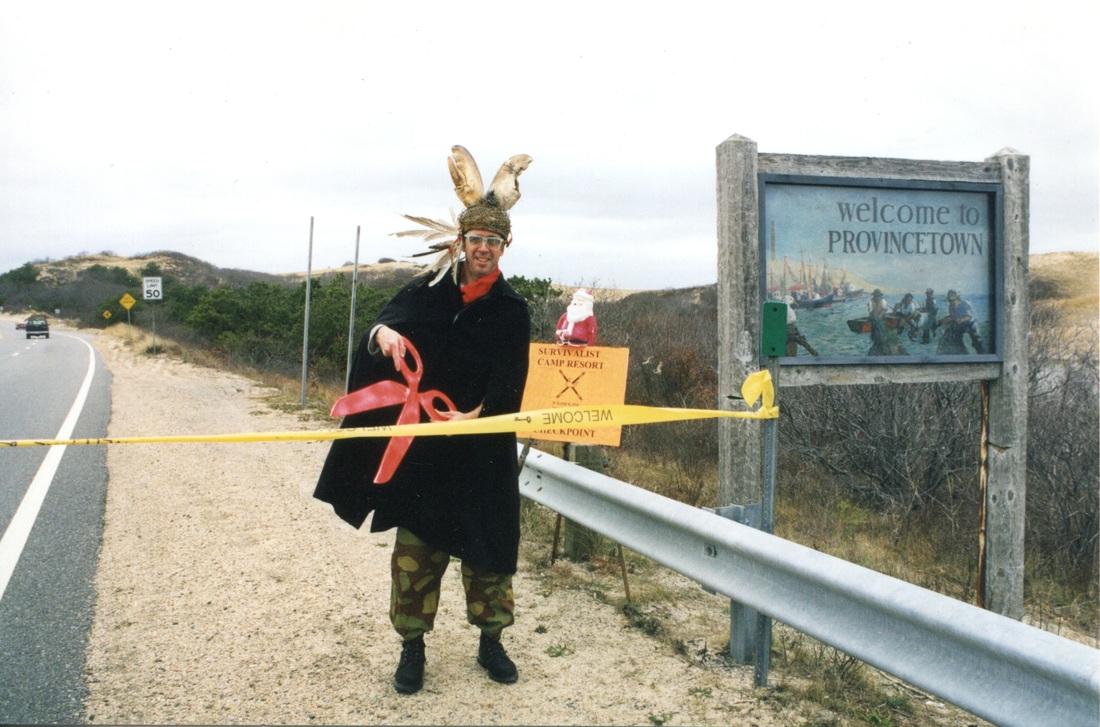P-TOWN, INC.
Jay Critchley’s beguiling, satirical, probing art has long examined cultural trends, ecological crises, and public health epidemics. He is regarded as an artist who looks out into the world and asks the important questions. With the creation of P-Town, Inc., Critchley turns his gaze in: he examines his own community and exposes internal crises of diversity erosion and gentrification.
As the housing market exploded in the 1990s, P-Town, Inc. presented a public development proposal with a crown jewel called The Visitor Processing Center—a replica of Disney’s Cinderella Castle—to replace the burned down landmark Whaler’s Wharf. The proposed center would screen visitors for credit history and shopping profiles. Critchley’s satirical plans would accommodate Provincetown’s demographic shifts by transforming the town into a playground for the affluent. He proposed a Center for Fecal Studies, and a Front Street Mall & Arcade—the complete enclosure of downtown Commercial Street to facilitate year round shopping.
Other P-Town, Inc. projects were more pointed. The Survivalist Camp Resort was a response to the influx of second-home owners and the Y2K computer crash panic of 1999. Critchley proposed Provincetown become “the world’s only gayted theme park for the well-heeled gay, lesbian, and bisexual survivalists fleeing botheration from Y2K.” He laid out his vision for the project in Provincetown Arts. The proposal was accompanied by a placemat insert bearing the project’s name and special sites and attractions.
Critchley’s vision for P-Town Inc. grew more intimate with his proposed Septic Summer Rental in his abandoned, backyard septic tank. This historic, bee-hive shaped structure morphed into a “theater in the ground” and was dubbed Provincetown’s “only true underground art scene” by the New York Times, presenting classical and contemporary opera, drag, art installations, poetry, and performance, as well as serving as the setting for Critchley’s HBO award-winning movie, Toilet Treatments.
As the housing market exploded in the 1990s, P-Town, Inc. presented a public development proposal with a crown jewel called The Visitor Processing Center—a replica of Disney’s Cinderella Castle—to replace the burned down landmark Whaler’s Wharf. The proposed center would screen visitors for credit history and shopping profiles. Critchley’s satirical plans would accommodate Provincetown’s demographic shifts by transforming the town into a playground for the affluent. He proposed a Center for Fecal Studies, and a Front Street Mall & Arcade—the complete enclosure of downtown Commercial Street to facilitate year round shopping.
Other P-Town, Inc. projects were more pointed. The Survivalist Camp Resort was a response to the influx of second-home owners and the Y2K computer crash panic of 1999. Critchley proposed Provincetown become “the world’s only gayted theme park for the well-heeled gay, lesbian, and bisexual survivalists fleeing botheration from Y2K.” He laid out his vision for the project in Provincetown Arts. The proposal was accompanied by a placemat insert bearing the project’s name and special sites and attractions.
Critchley’s vision for P-Town Inc. grew more intimate with his proposed Septic Summer Rental in his abandoned, backyard septic tank. This historic, bee-hive shaped structure morphed into a “theater in the ground” and was dubbed Provincetown’s “only true underground art scene” by the New York Times, presenting classical and contemporary opera, drag, art installations, poetry, and performance, as well as serving as the setting for Critchley’s HBO award-winning movie, Toilet Treatments.

